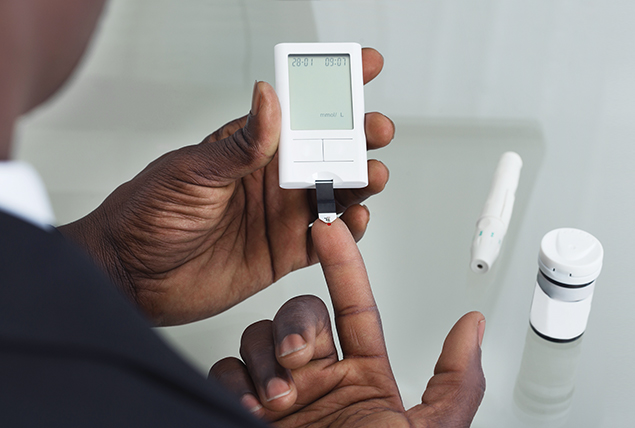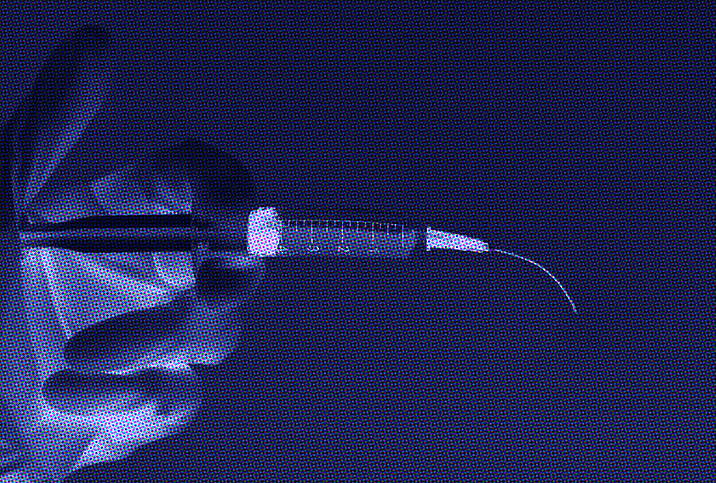How To Prevent Diabetes When You're Already Pre-Diabetic

Most people with pre-diabetes have no idea they have the condition or are at risk for it. More than 1 in 3 adults in the United States (96 million) live with the condition, and about 80 percent of them are unaware they have pre-diabetes, according to the Centers for Disease Control and Prevention (CDC).
"While the term 'pre-diabetes' may sound benign, it is actually a significant health concern that should not be ignored," said Aaron Erez, D.O., a family medicine practitioner with a specialty in functional medicine who has practices in San Diego and Portland, Oregon.
Annual medical visits and routine medical follow-ups are essential steps to keep health issues under control.
Pre-diabetes may impact your health in a significant way. However, the real problems come if you ignore what's happening to your body because there is a high risk you'll develop diabetes in the future.
Don't panic. If you can identify that you're pre-diabetic, you probably still have time to reverse the diagnosis with some medical supervision and lifestyle changes.
What does it mean to be pre-diabetic?
"Pre-diabetes means you have a higher-than-normal blood sugar level," said Gabriela Pichardo-Lafontaine, M.D., a board-certified internal medicine specialist with Resilient Health Austin in Austin, Texas. "It's not high enough to be considered type 2 diabetes yet."
As blood sugar increases, so, too, does the risk for a disease no matter the category you are in, according to Erez. He noted how crucial it is to perceive pre-diabetes and diabetes as a continuum of illness with varying degrees of severity, rather than distinct categories.
"Pre-diabetes serves as an early warning that blood sugar levels are elevated, which increases the risk for various health complications associated with it," he said.
Are you at risk?
"Many people don't know if they are pre-diabetic and may seek medical attention when is too late or it progressed to diabetes," Pichardo-Lafontaine said.
There are no red flags or signs and symptoms that indicate you may have pre-diabetes or a blood glucose problem. For this reason, she said she recommends annual medical visits and routine medical follow-ups as essential steps to keep health issues under control.
"We can check on this," she added. "Especially if you have a family history or are at risk for pre-diabetes and diabetes, which can be due to lifestyle choices—such as eating too much sugar—or being overweight or obese."
She listed some of the conditions that could put you at risk:
- Family history
- Gestational diabetes (diabetes during pregnancy)
- Lifestyle choices
- Obesity
- Obstructive sleep apnea (OSA)
- Polycystic ovary syndrome (PCOS)
Blood glucose levels increase over time, without providing any distinct symptoms. Therefore, for years it can be deteriorating your health without you noticing it unless you undergo blood tests.
"When you get certain symptoms, such as fatigue, increase in thirst, blurred vision, frequent urination, just to name a few, most likely you can be having much higher blood glucose levels," Pichardo-Lafontaine said. "This could indicate diabetes already and likely may need to start on medical treatment for this."
Can pre-diabetes lead to complications?
Pre-diabetes is associated with an increased risk of all-cause mortality, according to a 2022 meta-analysis published in Diabetologia. The researchers said there is an increased risk of diabetes-related chronic complications and comorbidities, including coronary heart disease, heart failure, kidney disease, cancer, stroke and dementia.
"Without the appropriate lifestyle changes, adults and children with pre-diabetes are at high risk to develop type 2 diabetes," Pichardo-Lafontaine said.
If you have pre-diabetes, you should reduce your intake of simple refined carbohydrates and sugars, and opt for low-glycemic foods such as vegetables.
Understanding degrees of severity can help individuals proactively address high blood sugar and pre-diabetes to prevent associated health problems, Erez added.
Can you prevent or reverse pre-diabetes?
"Type 2 diabetes and pre-diabetes are completely preventable diseases," Erez said. "Although some individuals may have a higher genetic risk, proper knowledge about diet, exercise and appropriate tools can help."
Lifestyle changes in patients with pre-diabetes can reduce the risk of type 2 diabetes by 58 percent—71 percent in people 60 years of age and older—according to studies by the Diabetes Prevention Program (DPP).
"You can certainly reverse this," Pichardo-Lafontaine said. "I have seen patients with weight issues start losing weight, and their metabolic markers—measured by certain lab tests—get much improved, including their blood glucose levels."
If you are lean or thin but you have a strong genetic and family predisposition, your doctors, including a nutritionist, can help you safely achieve change after intense efforts involving lifestyle adjustments, she added.
Changes in your diet as a treatment
"Since different foods affect blood sugar levels differently, collaborating with a doctor or nutritionist to identify the most significant contributors to high blood sugar is crucial," Erez said.
If you have pre-diabetes, you should reduce your intake of simple refined carbohydrates and sugars, and opt for low-glycemic foods such as vegetables, fiber, high-quality proteins and healthy fats, he explained.
Furthermore, he recommended the use of continuous glucose monitors—skin patches that transmit data to a smartphone—to help identify the foods that cause blood sugar spikes.
Reducing or cutting out certain foods can help you avoid health risks. For example, a 2023 meta-analysis review published in the medical trade journal BMJ detected harmful associations between sugar consumption and cardiometabolic diseases such as diabetes, high blood pressure and heart attack.
The researchers advised limiting sugary beverages and reducing sugar consumption to less than 25 grams per day (about 6 teaspoons). However, according to the CDC, the average person in the U.S. consumes 17 teaspoons per day. Just as a frame of reference, you should note that with just one 12-ounce can of soda, you're consuming about 39 grams of sugar.
Why should you exercise?
Insulin-stimulated glucose disposal increases significantly with at least four weeks of exercise, according to a 2023 study published in the International Journal of Obesity. Additionally, weight loss maximizes the effect and may contribute to improved hepatic insulin sensitivity.
Frequent visits to your doctor can facilitate the detection of high blood glucose levels early.
Exercise is a key focus for the treatment of pre-diabetes, Erez said. He specified some reasons you should seriously think about introducing regular physical activity into your week:
- Exercise enhances glucose utilization and directs it toward muscles for consumption.
- It ensures the body continues to respond to insulin.
- It improves sensitivity to insulin—an essential hormone that allows sugars to be processed by our organs and cells.
- Exercise prevents damage to blood vessels and cells.
What happens if you cross the line into diabetes?
"Once an individual develops diabetes, treatment becomes more challenging, and the risk for numerous health complications increases," Erez said. "At this stage, when patients transition from pre-diabetes to diabetes, medications are often needed alongside diet and exercise."
Erez said untreated or poorly managed diabetes can lead to damage in both small and large blood vessels, potentially causing:
- Diabetic neuropathy (nerve damage)
- Diabetic skin ulcers
- Diabetic retinopathy/blindness
- Heart attack
- Heart failure
- Kidney failure
- Stroke
"Additionally, individuals with diabetes face heightened risks of cancer, Alzheimer's, fatty liver, infectious diseases, erectile dysfunction and more," Erez said.
Visit your doctor
"If you are at risk or have concerns, I would recommend that you visit your primary care doctor or provider," Pichardo-Lafontaine said.
Frequent visits to your doctor can facilitate the detection of high blood glucose levels early. Your doctor may also conduct lab tests such as glucose tolerance tests, a fasting blood test and glycosylated hemoglobin.
Based on the results of these tests, they may guide you toward healthy habits and lifestyle changes that can make a difference.


















